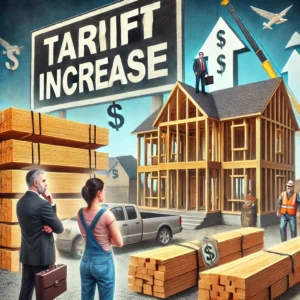In this blog post, we’ll take a look at some of the key trends and predictions for the Canadian real estate market in 2023, so you can make informed decisions about buying or selling property in the coming year.
One of the most important factors to consider when looking at the real estate market in 2023 is the overall state of the economy. The Canadian economy has been recovering from the impact of the COVID-19 pandemic, but there are still some challenges ahead. For example, the unemployment rate is still higher than pre-pandemic levels, and many businesses are still struggling. This could have an impact on the real estate market, as fewer people may be able to afford to buy a home or take out a mortgage.
Another important factor to consider is population growth. Canada’s population is expected to continue growing in 2023, and this will drive demand for housing in many areas of the country. This is particularly true in cities like Toronto and Vancouver, which are expected to see significant population growth in the coming years. This increased demand for housing could lead to higher prices and more competition among buyers.
The government also plays a role in shaping the real estate market in Canada. The government has implemented several policies over the years that aimed at cool the housing market, such as the stress test on mortgages and the foreign buyers tax. These policies have had an impact on the real estate market in the past and could continue to do so in 2023.
In terms of specific regions, the trends in the real estate market can vary greatly depending on where you are in the country. For example, in the Greater Toronto Area (GTA), the market is expected to see moderate price growth, with the average home price expected to reach around $1.1 million. In contrast, the market in Vancouver is expected to be more stable, with prices expected to remain relatively flat.
The rental market is also expected to see changes in 2023. The rental vacancy rate has remained low in Canada, and rental prices have been increasing. This trend is expected to continue in 2023, with rental prices expected to increase by around 2-3%. However, due to the economic challenges caused by the pandemic, it is also possible that more people will be looking to rent instead of buy, which could lead to increased competition for rental properties.
In conclusion, the real estate market in Canada is expected to be impacted by a variety of factors in 2023, including economic conditions, population growth, and government policies. While the market may be challenging in some areas, there are still opportunities for buyers and sellers to take advantage of. It’s important to keep an eye on the trends in your local market and to work with a real estate professional who can help you navigate the complex landscape of the Canadian real estate market in 2023.

















